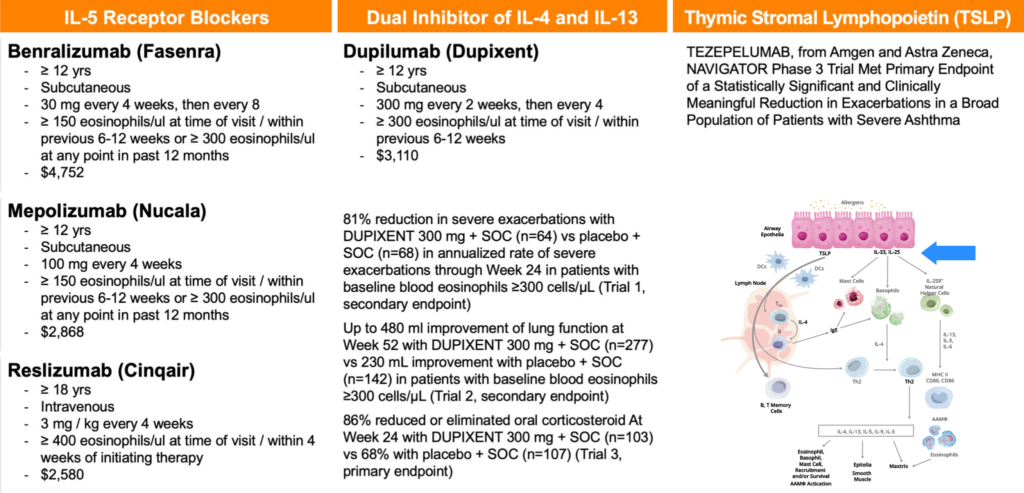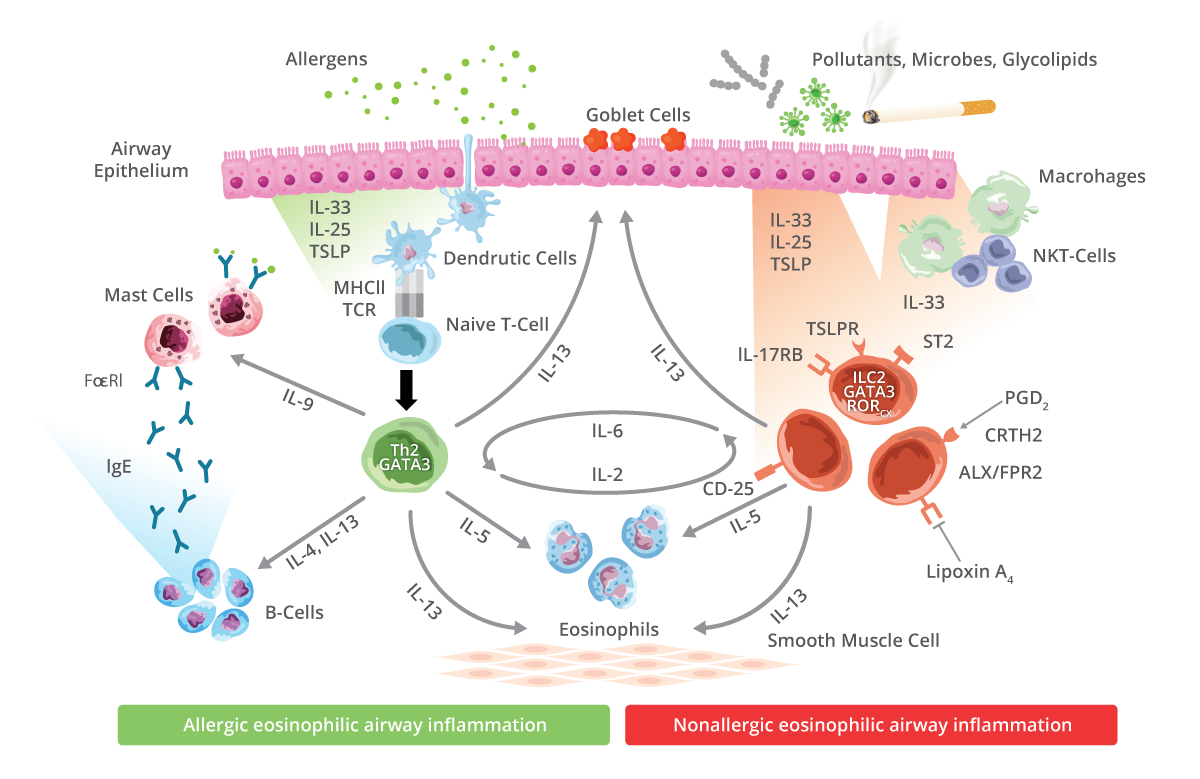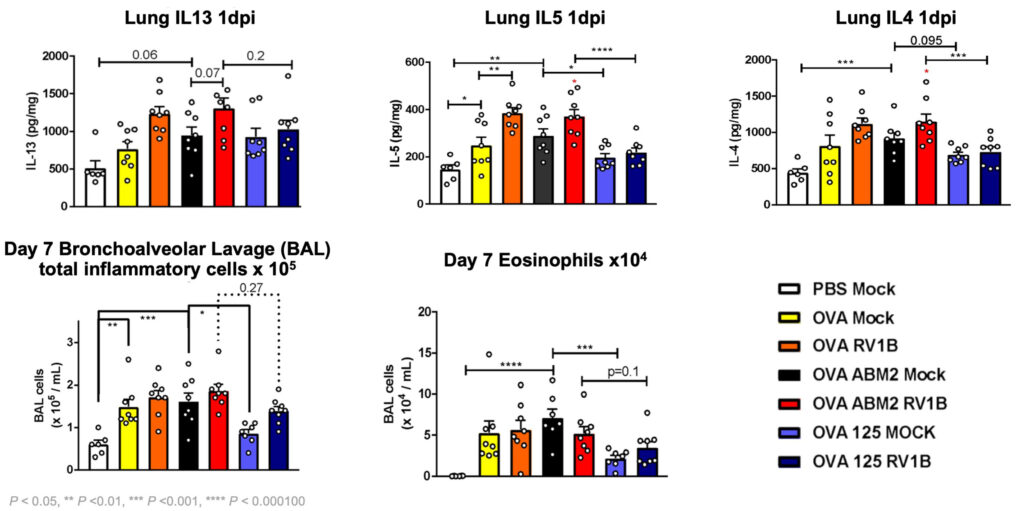- Fort et al, 2001: Repeated intraperitoneal treatment with recombinant IL25 caused splenomegaly and gut inflammation driven by serum IgE production, eosinophilia, and upregulation of the type-2 cytokines; IL-4, IL-5, and IL-13
- Kim et al, 2002: Transgenic mice overexpressing human IL25 develop eosinophilia, splenomegaly, and increased IL4 and IL5 production
- Wang et al, 2007: IL25 and IL25 receptor are upregulated in human asthmatic lung
- Ballantyne et al, 2007: Neutralization of IL25 bioactivity, during both the sensitization and challenge phase in acute OVA-induced experimental lung allergy, using an anti-IL25 monoclonal antibody, resulted in complete suppression of airways hyper-reactivity and a significant reduction in type-2 cytokine production, lung cell infiltration, and airways mucus production.
- Kouzaki et al, 2013: IL25 is stored intracellularly in airway epithelial cells, and is released upon exposure to many allergens. IL25 transcription is also increased.
- Yao et al, 2015: IL25 induces proliferation and expression of collagen I and III and smooth muscle α-actin in primary human lung fibroblasts
- Corrigan et al, 2011: IL25 is elevated in asthma and contributes to angiogenesis, at least partly by increasing endothelial cell VEGF/VEGF receptor expression
- Yao et al, 2015: Administration of IL25 to lungs is sufficient to cause functionally relevant airway remodeling
- Jung et al, 2009: IL17RB gene polymorphism and lower receptor expression genetically associated with asthma protection
- Chairakaki et al, 2017: Plasmacytoid dendritic cells drive acute exacerbation of asthma
Anti IL25 for Type 2 Inflammatory Disease
LNR 125.38
(aka ABM125)
Taking on the Whole Disease
Allergic and Non-allergic Induced Type 2 Inflammation in One Proprietary, First-in-class Medicine
- Moderate-to-severe asthma
- Atopic dermatitis
- Chronic rhinosinusitis with nasal polyps
- Eosinophilic esophagitis
- Food allergies
Type 2 Inflammation Treatment Market
To Reach USD 26.01 Billion by 2027

Blocking Upstream Epithelial Cytokines
Like IL25 Rather Than Proximal Type 2 Cytokines (IL4, IL5, IL13) is a New Approach for Treatment of Exacerbations in Uncontrolled Asthma Patients Caused by Both Allergens and RV
Target epithelial expressed cytokines
- Bronchial epithelial cells (BECs) release IL25 in response to viral infection and allergens
- Single target – upstream of other TH2 cytokines
- Possibility of reducing or eliminating the effects of all downstream cytokines simultaneously
- Potential for directly treating airways
Target proximal TH2 cytokines (IL-4, IL-5 and IL-13)
- Current approach pursued by multiple companies
- Cannot target all cytokines simultaneously
- Mixed clinical results (disease phenotype dependent)
- Not clear if preventing viral exacerbations

Substantial Body of Research
Validates IL25 as a Target in Asthma
LNR 125.38
Significantly Reduces Type 2 Cytokines and Inflammatory Cells Increased in Allergic Mice and in Mice with RV-induced Asthma Exacerbations

